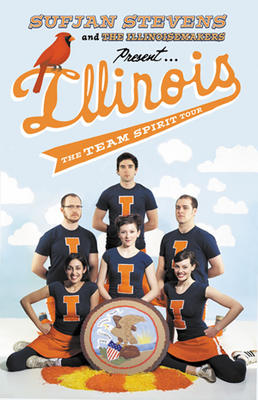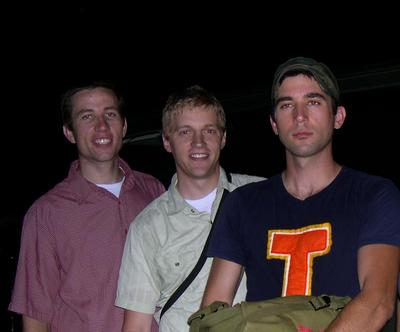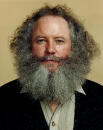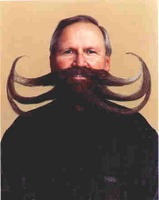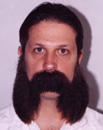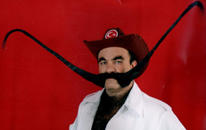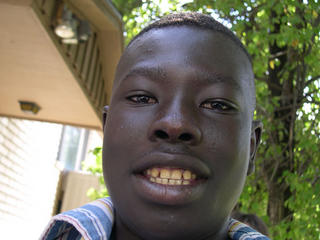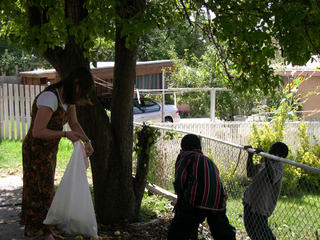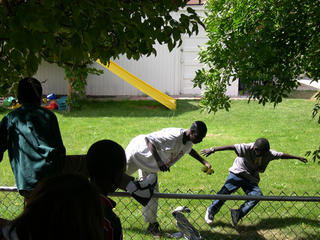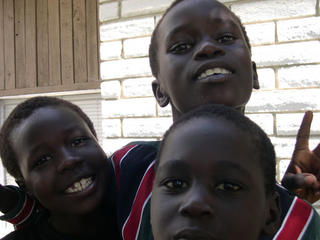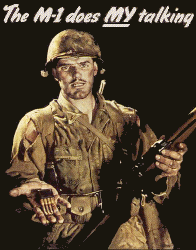Dare I say something completely un-American today? Yes. I hate playing baseball.
I know, it's "America's pasttime." But hear me out, and tell me if I'm not justified. I've always been moderately athletic. Ever since I can remember I've been able to compete with people my age at a better-than-average level. You name it: monkey-bars, king-of-the-hill, sack races, kick ball. I was rarely the best at any one thing, but always had enough to get picked top five for the various peicemeal teams. So, when I was about ten years old one of my best friends, Jacy Banta, convinced me to go out for Pee Wee Baseball.
His dad was the coach of a team called "Stud Mill." By virtue of the team name alone any member had to be a bona-fide bruiser. Other teams would show up in their bright jerseys and crisp pinstriped pants that had the little heel straps. Professional looking stuff. Not the Stud Mill. We would take the field in jeans and plain green T-shirts, no pockets, with white iron-on letters that weren't quite straight. S-T-U-D-M-I-L-L. Thats it. Some of us had cletes, some didn't. It didn't matter, we would beat you down regardless, thumb our noses at your rich parents, then go home for a dinner of Elk meat and a side of nails. This was the testosterone drenched attitude that I adopted for survival from an early age.
The truth is, I've always looked like an imposter. I was a fourth-grader that looked like he had mistakenly wandered into class from the second grade hallway. I consider myself lucky there weren't any weigh-in's associated with Pee Wee Baseball, otherwise I would have been teeing off with the kindergarteners. But what I lacked in mass I hoped to make up for in heart and perhaps a little trickery. I can't recall learning the cool sign-language associated with the sport. I don't ever really remember being instructed in the fundamentals. There is only one peice of baseball advice that I have retained: "Keep your eye on the ball." Although an excellent principle, it didn't avail me much. Despite all my efforts to keep my eyes on the ball, I simply wasn't clever enought to allign with it. Soon the Kryptonite of my athleticism reared its ugly head, and I found myself the permenant, and no doubt embarressing, fixture of right field.
Honestly, though, I was content with my little corner of the outfield. Not many balls came toward me, and that meant fewer opportunites to flubb. My friends were still friendly. I wasn't completely ostracized for my lack of skill. But I imagine that they looked at me the same way I looked at my pet cat (which was missing one foot, one eye, and its tail). I maybe could have thrown members of my team off the bunker hill, and burned them in a sprint across the jungle gym, but I couldn't catch the ball to save my life. At the end of the season I would have been justified in returning my mit to the store, unused, and in tip top pristine condition.
I was nearly through a complete season of baseball and, to my recollection, hadn't been on base one time. I was a guarenteed strike out. They arranged me carefully in the batting order so that I wouldn't fall into a crucial spot where they might actually "need" me to get a hit. In batting practice I would often get beaned with a pitch and soon developed an irrational fear of the ball. Coach Banta was a tough man, not given to pampering, which is good in a coach. He earned the kids' respect, and I was terrified that I wasn't earning his.
One day at the end of practice Coach Banta hit balls to each member of the team in their respective field position. As soon as you caught the ball you could go in and be done with practice. Fifteen minutes later both the in- and outfield remained empty, all except for right field. Ball after miserable ball came soaring directly towards me, whereupon I would stand under it and hold my untarnished mit to the sky. Invariably the ball would either miss by an inch to one side, falling shamefully to the ground, or ricochet off my arm on the other side (which hurt like a mother), or worst of all, bounce off the inside of my glove and then onto the ground. I must have had two dozen chances come my way. As I was sprawling in the grass, the rest of the team members were going home with their parents, ultimately leaving only myself, Jacy on the sideline, and Coach Banta hitting the balls.
My mom picked me up for practice that day and I told her I wanted to quit. She replied that she didn't raise a quitter, but I insisted, I shed tears, I pleaded. She told me that I had to finish out the season and afterwards, if I wanted, I could make that decision. When that longest of seasons in all of sports history came to an end I decided to leave baseball behind forever.
Jacy and I would remain friends, though never quite as close as we were those precious years before I joined the Stud Mill. I went on to find my nitche in the sport of wrestling, and Coach Banta would show up to watch the team, always greeting me with a smile and telling me how proud he was of my matches. He developed a degenerative disease and it became difficult for him to move around, or go out in public. Depsite the extreme painfulness of it all I would ask him how he was
really doing, and he would consistently put on a smile and reply that we was terriffic.
Years later, as I was living in South America, I recieved Coach Banta's obituary in the mail and a copy of the funeral program. I cried. That season of baseball was crucial in many ways, aquainting me with the demon of fear, learning the importance of seeing something through (like it or not), and about learning to love a man who took great pleasure in seeing young boys grown into men, a man who somehow confronted death's angry teeth with a smile. I suppose, looking back, that I learned really how to keep my eye on the ball.
I still don't like playing baseball though.
